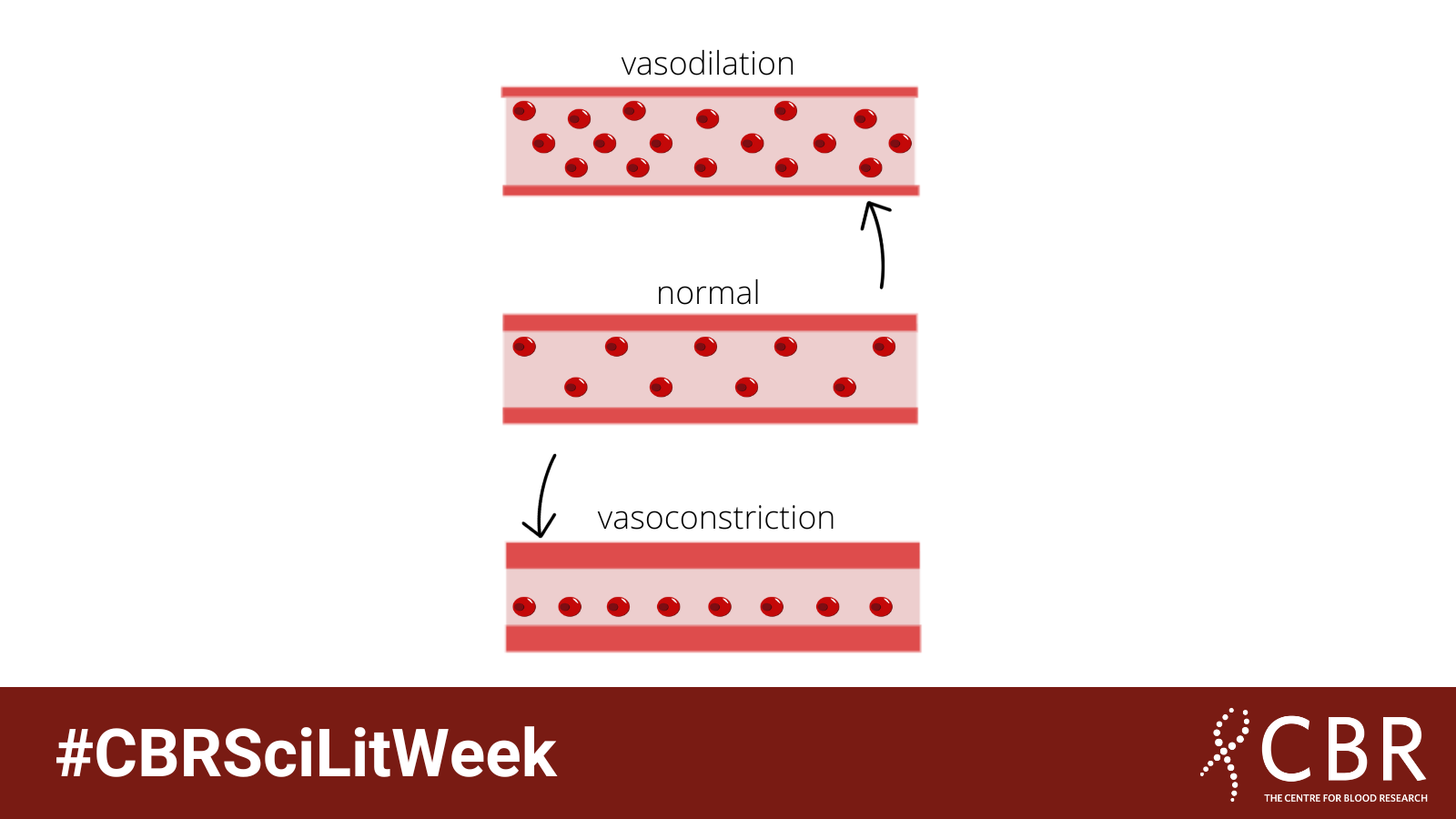For Science Literacy Week 2022, some members of our CBR Knowledge Translation Committee have joined forces to co-create a social media campaign, sharing blood facts and celebrating science with #CBRSciLitWeek. More posts will be shared throughout the week!

By: Loulou Cai, PhD Student, Côté Lab
 Did you know that the blood in our body can help us stay warm or cool us off when needed?
Did you know that the blood in our body can help us stay warm or cool us off when needed?
When we are feeling too warm, the blood vessels in our body will vasodilate, or expand. When blood vessels expand, the blood is closer to the skin. This is just like if we exchange our thick winter blanket for a thinner one: when our blood vessels are closer to the surface of the skin, this decreases the insulation, which in turn, cools us down.
However, the outside temperature isn’t the only thing that can make our blood vessels dilate. Our body has similar responses to inflammation and even exercise!
When we get hurt, our immune system sends immune cells like soldiers to the site of injury, to fight off any bacteria and promote healing. The blood vessels near the site of injury will dilate, allowing for more white blood cells to enter.
During exercise, our muscles require more oxygen to keep them moving, so vasodilation occurs to deliver blood more efficiently to these muscles.
In contrast, when we are feeling too cold, the blood vessels in our body will vasoconstrict, or shrink, moving further away from the surface of the skin. This is like changing out a thin blanket for a thicker one, causing us to insulate and retain heat.
Other situations can cause vasoconstriction as well. One example is when your body needs to send specific organs more blood. If we are running, the blood vessels that lead to our muscles would vasodilate, since that part of your body is working very hard and requires more blood, nutrients, and oxygen. At the same time, blood vessels leading to the digestive tract would vasoconstrict, since less is needed there during exercise.
Other triggers of vasoconstriction may include smoking, coffee intake and salty foods, which generally cause blood vessels to tighten.
Every day, your blood vessels dilate and constrict in response to the environment around you. The next time you feel your body start to adjust to a cold winter day, you can thank your blood vessels!
What is Science Literacy Week?
Science Literacy Week showcases the many ways kids and families can explore and enjoy the diversity of Canadian science. Libraries, museums, science centres, schools and not-for-profits come together to highlight the books, movies, podcasts and events that share exciting stories of the science, discoveries and ingenuity shaping our lives. It’s about each and everyone’s unique relationship with science and how they live it.
- Read the #CBRSciLitWeek posts. More posts will be shared throughout the week!
- Learn more about Science Literacy Week.


